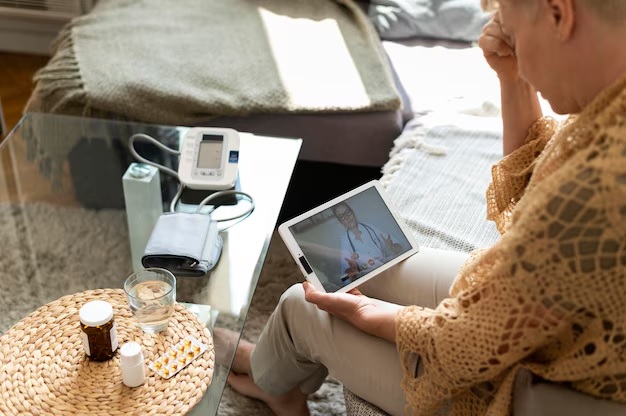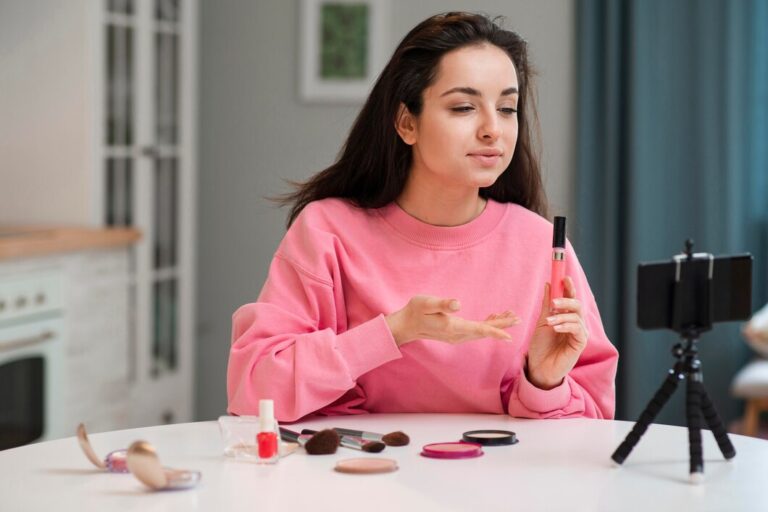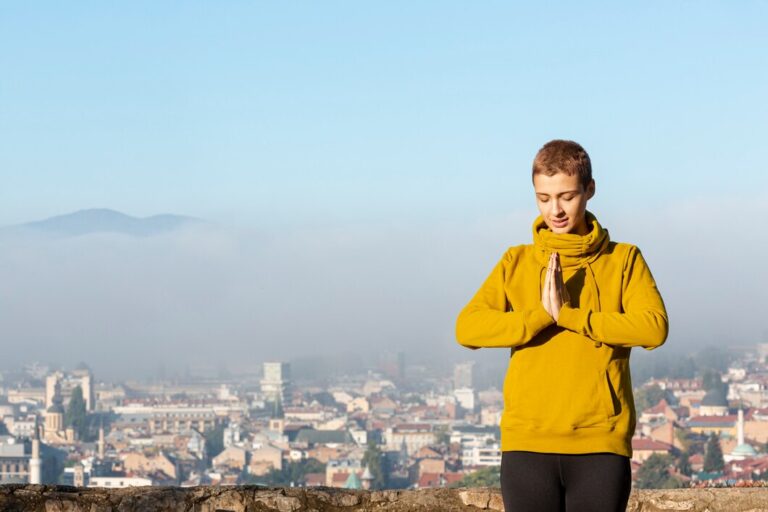
Your phone buzzes. It’s a notification from a news app, a stressful email from work, or a social media post sparking anxiety. Our digital devices are often the source of our mental strain. But what if that same device could be a powerful part of the solution? Welcome to the great paradox of modern wellness. The app store is flooded with thousands of options promising peace and clarity, but choosing the right one can feel as overwhelming as the problems you’re trying to solve. This article is your definitive guide to the Best digital wellness apps for mental health in 2025.
We’ve moved beyond the basic first-generation apps. For this list, we’ve applied a rigorous set of criteria to identify the platforms that are truly poised to make a difference in 2025. We’ll explore tools that leverage smart AI, offer evidence-based therapies, champion user privacy, and provide holistic support.
This is especially crucial for students and young adults navigating the unique pressures of academics and modern life. Get ready to discover which app is the perfect fit to transform your phone from a source of stress into a sanctuary in your pocket.

Beyond the Hype: How We Picked the Best Apps for 2025
Not all mental health apps are created equal. A pretty interface or a celebrity endorsement doesn’t guarantee effectiveness. As we look toward 2025, users are savvier and demand more than empty promises. Our selection process was guided by four forward-looking principles to ensure these recommendations offer genuine, lasting value.
Before we dive into the list, it’s crucial to address a key point: Can an app replace a therapist? The answer is a clear no.
These apps are best viewed as powerful tools for mental fitness, daily support, and building self-awareness. They can be an incredible first step, a supplement to professional therapy, or a way to maintain mental well-being, but they are not a substitute for clinical care in a crisis.
Here’s the criteria every app on our list had to meet:
Key Selection Criteria:
- Evidence-Based Methods: The app must be built on scientifically validated techniques. We looked for tools grounded in Cognitive Behavioral Therapy (CBT), Dialectical Behavior Therapy (DBT), or Mindfulness-Based Stress Reduction (MBSR), with studies to back up their claims.
- Advanced Personalization & AI: The future isn’t a static library of audio files. The best apps in 2025 use artificial intelligence to learn from your feedback, track your mood, and offer truly personalized guidance that adapts and grows with you.
- Unyielding User Data Privacy: In an age of data breaches, your most sensitive information—your thoughts and feelings—must be protected. We prioritized apps with transparent, user-first privacy policies that don’t sell your data to third parties.
- A Holistic, Integrated Toolkit: Mental wellness isn’t just about meditation. The leading apps offer a suite of tools, combining things like mood tracking, guided journaling, psychoeducational resources, and sometimes, pathways to human coaching or therapy.
So, which platforms excel under this modern scrutiny? Let’s reveal our top 5.

Our Top 5 Digital Wellness Apps for Mental Health in 2025
1. Balance: For Hyper-Personalized Meditation
- Best for: Beginners, students, and anyone who feels overwhelmed by the “library” approach of older meditation apps.
- Why it’s a top pick for 2025: Balance’s entire premise is a direct answer to the paralysis of choice. Instead of presenting you with thousands of meditations, it asks you questions about your experience, goals, and mood, and then its AI curates a single, perfect-for-you guided session each day. This “less is more,” personalized approach is the pinnacle of smart, adaptive wellness technology. For students looking to build a consistent practice without adding another decision to their day, this is a game-changer.
- Standout Feature: The 10-day Foundational Plans are remarkable. They teach you core mindfulness skills (like breath awareness or labeling thoughts) and the app’s AI adjusts the subsequent sessions based on your feedback. It feels less like a library and more like a personal meditation coach.
- The Catch: Its content library is intentionally smaller than giants like Calm or Headspace. If you’re an experienced meditator who wants to browse a vast collection of specific, niche topics, you might find it limiting. But for building a solid, consistent practice, its focus is a strength.
2. Woebot: For On-Demand CBT in Your Pocket
- Best for: Those new to therapeutic concepts, people needing immediate coping strategies, and students dealing with day-to-day anxiety, procrastination, or negative thought patterns.
- Why it’s a top pick for 2025: Backed by Stanford research, Woebot makes Cognitive Behavioral Therapy (CBT)—the gold standard in talk therapy—accessible, affordable, and stigma-free. It’s a friendly chatbot that checks in with you, tracks your mood through conversation, and teaches you to challenge and reframe negative thoughts in real time. It’s an incredibly powerful tool for building emotional resilience on your own terms.
- Standout Feature: The “in-the-moment” support is unparalleled. If you’re feeling a spike of anxiety or are stuck in a cycle of self-criticism, you can open Woebot, and it will guide you through a proven CBT exercise, like a thought challenge, in just a few minutes. It’s like having a first-aid kit for your mind.
- The Catch: While its AI is impressive, Woebot is not a human. It cannot understand deep trauma or complex life situations with the nuance of a person. It is a brilliant CBT tool, but not a replacement for human connection and professional therapy for severe conditions.
3. Finch: For Gamified Self-Care That Actually Sticks
- Best for: Anyone who struggles with motivation, young adults, students, and those who find traditional journaling and mood tracking to be a chore.
- Why it’s a top pick for 2025: Finch has cracked the code on consistency, which is the biggest hurdle in self-care. It brilliantly combines mood tracking, goal setting, journaling, and habit formation into a delightful game where you take care of a virtual pet—your “Finch.” By completing small, real-world self-care tasks (from drinking water to writing down three things you’re grateful for), you earn energy for your bird to go on adventures.
- Standout Feature: The core loop is genius. The external motivation of helping your cute digital companion directly translates into internal motivation to care for yourself. This positive reinforcement loop makes self-care feel less like a duty and more like a rewarding, joyful activity. The app’s inclusive design and supportive community features are also top-notch.
- The Catch: For users seeking deep, philosophical mindfulness content or rigorous, data-heavy analysis, the gamified, cute aesthetic might feel a bit simplistic. It excels at building foundational habits through positive psychology.
Tweetable Quote: “Finch proves that the secret to consistent self-care isn’t discipline—it’s making the process joyful. You show up for your digital pet, and in doing so, you learn to show up for yourself.”
4. Sanvello: For Integrated, Stepped-Care Support
- Best for: Individuals who want a comprehensive toolkit with the option to connect with a human coach or therapist as their needs evolve.
- Why it’s a top pick for 2025: Sanvello represents the future of truly integrated digital mental healthcare. It operates on a “stepped-care” model. You can start with its excellent suite of free, evidence-based self-care tools (mood tracking, guided journeys based on CBT, coping exercises). If you find you need more support, you can “step up” to text-based coaching and, if needed, licensed clinical therapy, all within the same app. Many universities and insurance plans are now covering Sanvello, making it more accessible.
- Standout Feature: The all-in-one integration. It seamlessly bridges the gap between self-help and professional help. You can track your mood and use coping tools, and if you later connect with a Sanvello therapist, you can choose to share that data, giving them valuable context for your sessions.
- The Catch: The human coaching and therapy components come at a significantly higher cost. While increasingly covered by insurance and employers, the out-of-pocket price can be a barrier for those without coverage.
5. Waking Up: For Deeper, Philosophical Mindfulness
- Best for: Skeptics, critical thinkers, experienced meditators, and intellectually curious students who want more than just relaxation.
- Why it’s a top pick for 2025: As more people graduate from the 101-level of mindfulness, there’s a growing appetite for depth. Waking Up, created by neuroscientist and philosopher Sam Harris, is the undisputed leader in this space. It offers a secular, no-nonsense, and deeply intellectual exploration of the nature of consciousness. It’s less about “calming down” and more about “waking up” to the reality of your own mind.
- Standout Feature: The powerful combination of practice and theory. Alongside daily guided meditations, the app features a massive library of “Lessons”—short audio essays on philosophy, neuroscience, ethics, and the psychology behind mindfulness—from Sam Harris and other world-renowned thinkers. It treats its users like intelligent individuals capable of understanding the “why” behind the practice.
- The Catch: Its rigorous, direct, and intellectual style can be intimidating for absolute beginners who are simply looking for a quick tool to ease anxiety before a meeting. It’s an incredible resource, but it’s not trying to be everything to everyone.
The Framework: How to Choose the Right App for YOU
The perfect app doesn’t exist—only the perfect app for you. Use this simple 4-step framework to make an intentional choice that aligns with your unique needs.
Your Personal App-Selection Checklist:
- Define Your Primary Goal: What is the #1 thing you want help with?
- Reducing daily anxiety or stress
- Sleeping better
- Building focus and concentration
- Understanding and reframing my thought patterns (CBT)
- Building consistent self-care habits
- Exploring the deep philosophy of mindfulness
- Identify Your Preferred Style: How do you like to learn and engage?
- Guided & structured (like a course)
- Conversational & chat-based
- Gamified & fun
- Intellectual & philosophical
- Consider Your Budget & Commitment: Be realistic.
- I need a robust free version.
- I can afford a monthly subscription.
- I have 5-10 minutes per day.
- I can commit 15-20+ minutes per day.
- Run a One-Week Trial: Don’t app-hop. Pick the app that best matches your answers above and commit to using it every day for one full week. Only then can you truly know if it’s a good fit.
Conclusion: Your Pocket-Sized Ally
In 2025, the conversation around mental health has evolved. We recognize that it’s not a problem to be “fixed” but a part of our overall health to be continuously nurtured. The most effective digital wellness apps for mental health reflect this understanding. They are not magic bullets, but sophisticated, compassionate, and evidence-based allies for your journey.
From the personalized coaching of Balance to the on-demand CBT of Woebot, the joyful habit-building of Finch, the integrated care of Sanvello, or the profound depth of Waking Up, there is a tool perfectly suited to your needs. By making an intentional choice, you can transform the technology in your hand from a source of distraction into a dedicated partner in building a healthier, more resilient mind.
Which of these apps resonates most with you, and why? Share your thoughts in the comments below!
Frequently Asked Questions
Question 1: Are there any good free digital wellness apps for mental health?
Answer: Yes, absolutely. Many of the best apps operate on a “freemium” model. For example, Finch offers a very generous free version that is highly functional for building habits. Woebot’s core CBT chatbot is free to use. Sanvello provides its entire suite of self-care tools, including mood tracking and guided journeys, for free. Balance famously offers a full one-year free trial, which is more than enough time to build a solid practice.
Question 2: How do I know if the mental health information in an app is reliable?
Answer: This is a critical question. Look for apps that are transparent about their scientific backing. The best digital wellness apps for mental health will cite their use of evidence-based methods like CBT or MBSR and often have research or clinical studies linked on their website. Prioritizing apps developed in collaboration with psychologists, therapists, and neuroscientists—like Woebot (Stanford) and Waking Up (Sam Harris)—is a great strategy.
Question 3: With so much personal data, should I be concerned about the privacy of these apps?
Answer: Yes, you should be vigilant. Data privacy is a key differentiator for top-tier apps in 2025. Before downloading, read the privacy policy summary. A trustworthy app will state clearly that they encrypt your data and will not sell your personal, identifiable information to advertisers or data brokers. All the apps on this list have strong privacy track records, but it’s a good habit to practice with any new digital tool you use.




